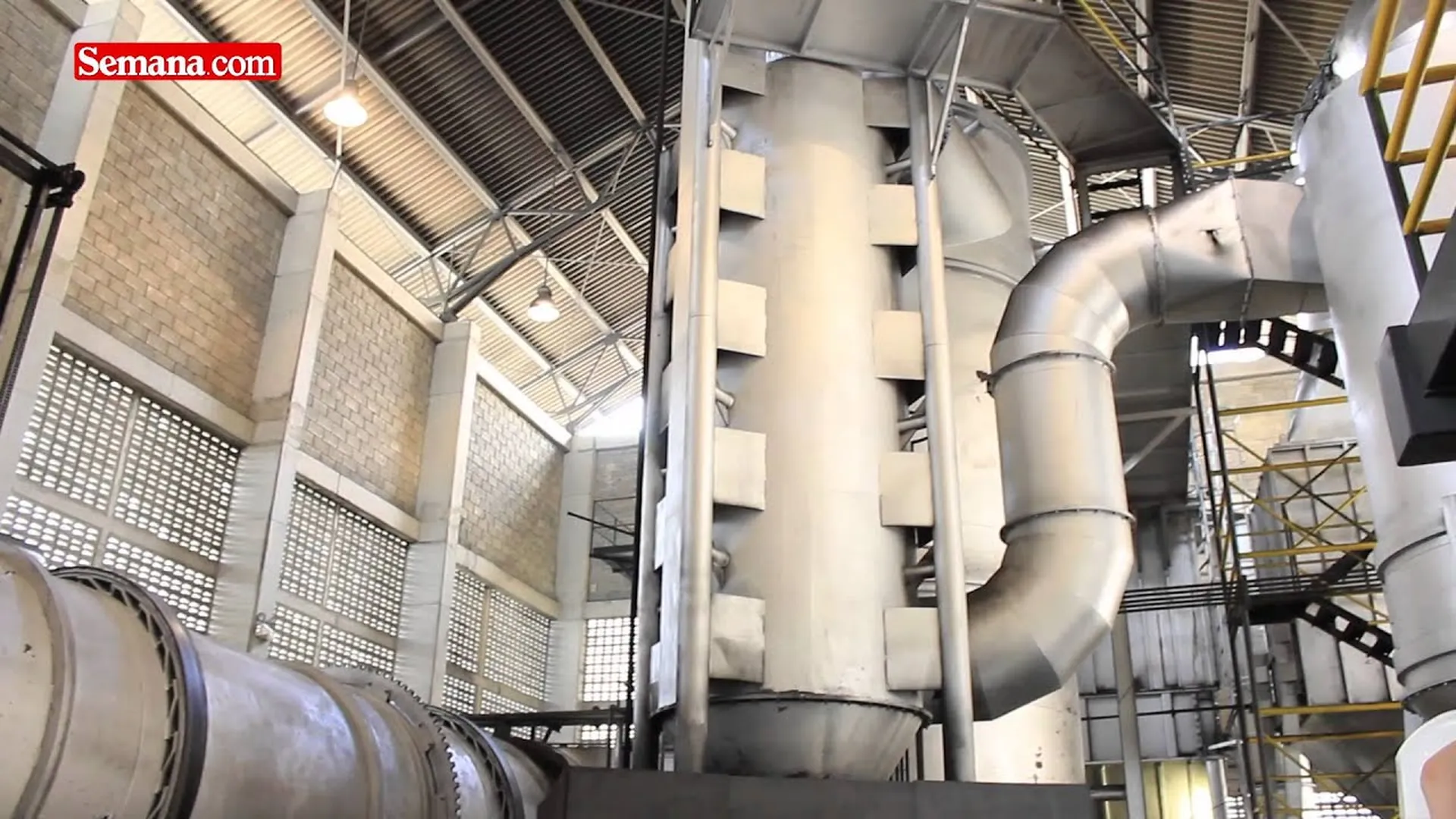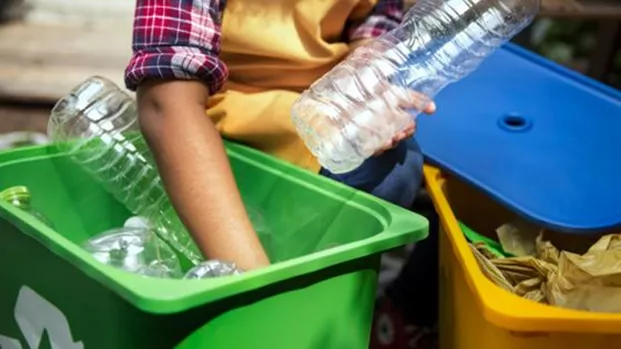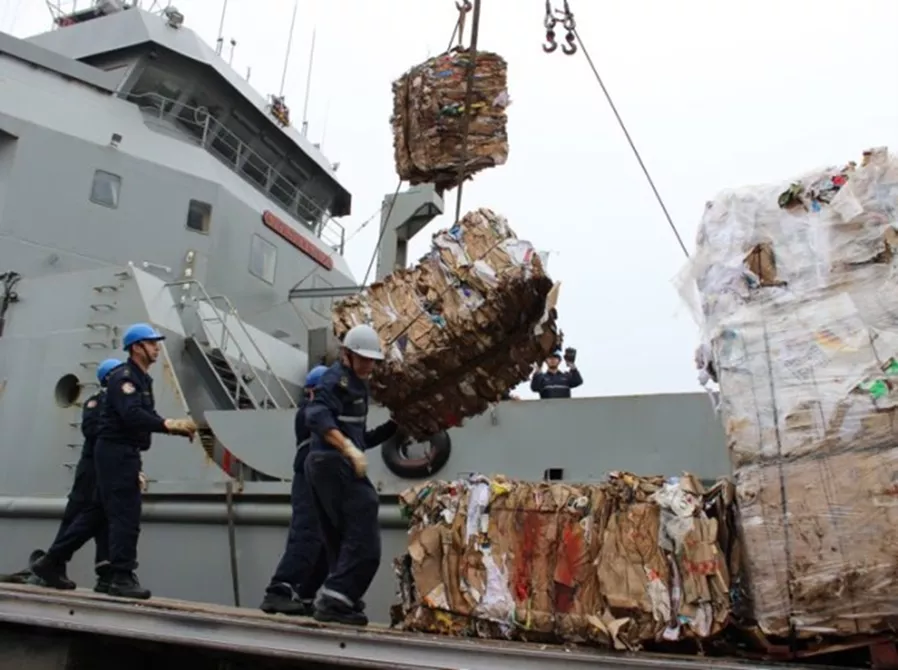Table of Contents
Waste management on offshore platforms represents a challenge for the energy industry. These offshore structures generate a considerable amount of waste during their oil and natural gas extraction and production operations.
The energy industry has a responsibility to implement responsible waste management practices on offshore platforms. Adopting innovative technologies, investing in sustainable solutions and promoting a culture of environmental responsibility are essential to minimize environmental impact and build a more sustainable future for the industry.
In this article, we will explore management practices, some key points, benefits and solutions for efficient waste management on these platforms.
The importance of waste management on offshore platforms
Offshore platforms house hundreds of workers and operate in fragile environments. Every day, tons of waste are generated, from food packaging to hazardous chemicals. Integrated waste management is essential for:
- Protect the marine ecosystem: Prevent pollution of the seas and marine life.
- Comply with international regulations: The IMO establishes standards to prevent pollution from ships’ garbage.
- Ensure worker safety: Improperly managed waste can pose health and safety risks.
Types of waste generated on offshore platforms
Segregation is key. Municipal solid waste, special handling and hazardous waste must be carefully segregated. Plastics, glass and metals can be recovered, while hazardous waste requires specific treatment.
Offshore platforms are complex installations that generate a variety of wastes, including:
- Household waste: From cooking, accommodation and crew activities.
- Industrial wastes: such as oils, lubricants, chemicals, and construction materials.
- Medical waste: Generated in the medical care of the crew.
- Hazardous waste: Such as batteries, electronics, and materials with toxic content. Chemicals, oils and other hazardous wastes should be handled with extreme caution. Storage and transportation procedures must be impeccable.
Responsible management of this waste is crucial to protect the marine environment and the safety of people working on the platforms.
Solid waste management practices
Proper solid waste management practices are essential to protect public health and preserve the environment. These practices include sorting waste at source, promoting recycling and reuse of materials, as well as the proper disposal of waste that cannot be recycled. In addition, community education and awareness of the importance of responsible solid waste management play a crucial role in the success of these initiatives, fostering a culture of sustainability and respect for the natural environment.
Below is the following video on how hazardous solid waste is handled, courtesy of: Semana Magazine.

Manejo de residuos peligrosos.
Waste management practices on offshore platforms are based on the waste hierarchy:
- Source reduction: Minimize waste generation through material selection, efficient use of resources and implementation of reduction programs.
- Reuse and recycling: Separate and sort waste for reuse or recycling when possible.
- Treatment: Apply waste treatment technologies such as incineration, compaction, and dehydration.
- Transport and final disposal: Transport waste to land for final disposal in authorized facilities.
Some specific practices for each stage of waste management are described below:
Reduction at source
Source reduction is a strategy that seeks to reduce the amount of waste generated at the source of production. It is the most effective environmental protection strategy because it focuses on eliminating the problem at its root.

Below are some key points to reduce the waste generated:
- Facilitate treatment and recycling: When waste is separated into different containers according to its nature, its subsequent treatment and recycling is facilitated. This helps reduce the amount of waste going to landfills or incinerators, which in turn reduces environmental pollution.
- Reduce treatment costs: By separating waste at source, the amount of waste going to landfills or incinerators is reduced, which lowers waste treatment and management costs.
- Improve compost quality: By separating organic waste, higher quality compost can be produced, which can be used as fertilizer for soils and plants.
- Raise awareness of the importance of recycling: Waste reduction at source is an effective way to raise awareness of the importance of recycling and environmental protection. Implement awareness programs for the crew on the importance of waste reduction.
- Implement preventive maintenance practices to reduce industrial waste generation.
- Use biodegradable and non-toxic products whenever possible.
In summary, source reduction is a simple but very effective practice to reduce the amount of waste going to landfills or incinerators, improve the quality of compost and raise awareness of the importance of recycling. Every small gesture counts to take care of our planet!
Reuse and recycling
Reuse and recycling recycling are two fundamental strategies in waste management that seek to minimize environmental impact and promote sustainability. Here are some key points on these issues:
- Reuse: Consists of giving an object a second useful life, without making significant changes to its original form3. This may involve using an object for a different purpose or repairing an object for its original use.
- Recycling: Involves subjecting materials or products to a process to convert them into new ones. This may include collecting materials, processing them to recover useful material, and manufacturing new products from that recovered material.
These strategies would generate several practices, among them:
- Implement a waste segregation program at the platform.
- Train the crew in waste classification.
- Store recyclable waste in specific containers.
- Transport recyclable waste to the mainland for processing.
It is important to mention that reuse and recycling are only one part of the waste management hierarchy, which also includes source reduction and proper disposal of waste.
Treatment
Waste treatment is a crucial step in integrated waste management. Involves the processing of waste to reduce its volume and minimize its environmental impact. The following are some key points of this process:
- Incinerate hazardous and non-hazardous waste that cannot be reused or recycled.
- Compact waste to reduce its volume.
- Dewater sludge and other wet wastes.
It is important to mention that waste treatment must be carried out in accordance with local and national regulations, and always seeking to minimize environmental impact. In addition, it is crucial that all stakeholders, including waste generators, local authorities, collection and treatment service providers, and the community at large, are involved in this process.
Transport and final disposal
Waste transportation and disposal are critical steps in waste management practices on offshore platforms.
- Transportation: This activity consists of collecting solid waste at the sites where it is generated (in this case, the offshore platforms) and its subsequent transfer to the treatment and/or final disposal facilities. It must be carried out efficiently and safely, to avoid environmental contamination and protect people’s health.
- Final disposal: This is the last stage in waste management and refers to the disposal of waste in appropriate and authorized sites. This may involve landfilling or incineration. Here are some key points on this topic:
- Transport waste to land in sealed and labeled containers.
- Contract certified companies for the transportation and final disposal of waste.
- Ensure that waste is disposed of in authorized facilities that comply with environmental standards.

It is important to mention that the responsibility for the management and final disposal of hazardous waste lies with the person who generates it. In the event that hazardous waste management and disposal services are contracted by authorized companies, the responsibility for the operations will be theirs, regardless of the responsibility of the waste generator.
Additional considerations
- Waste management practices on offshore platforms should be documented and procedures according to international standards in a waste management plan.
- The waste management plan should be updated regularly to reflect changes in operations and legislation.
- It is important to conduct periodic audits to verify compliance with the waste management plan.
Benefits of good practices
Good waste management practices on offshore platforms offer a number of benefits:
- Protection of the marine environment: Prevent contamination of water and marine life.
- Waste reduction: By reusing and recycling, the amount of waste generated is reduced, reducing the need for landfills and incinerators.
- Personal safety: Minimize the risk of accidents and illnesses related to waste.
- Cost reduction: Decrease costs associated with the transportation and final disposal of waste.
- Saving of natural and energy resources: The reuse and recycling of materials allows saving natural and energy resources, which in the long term translates into economic savings for society.
- Improve corporate image: Demonstrate a commitment to sustainability and environmental responsibility.
- Innovation: Reuse and recycling of waste are at the heart of regulatory development, and also at the focus of research and innovations to achieve a circular model.
Interesting data
- It is estimated that offshore platforms generate around 700,000 tons of waste per year.
- 90% of the waste generated on offshore platforms is transported to land for treatment.
- The energy industry is investing in innovative technologies that can reduce the volume of waste on offshore platforms by up to 50%.
Conclusions
Efficient waste management on offshore platforms is essential to protect the marine environment, ensure safe operations and improve the efficiency and reputation of the energy industry.
The implementation of responsible waste management practices on offshore platforms is essential to protect the marine environment, ensure the safety of people and contribute to the sustainability of the offshore industry.
“Join the change: innovate in offshore sustainability.”
References
- United Nations Global Compact website: “Waste reuse and recycling. Innovation to achieve the 2030 Agenda”.
- Andalucia.facua.org: “Guide on household waste management, reuse of resources and recycling”.
- World Vision: “Reuse, reduction and recycling, what is their importance?”.

